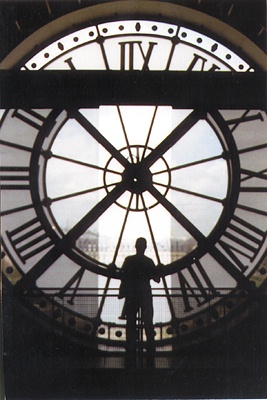All Nonfiction
- Bullying
- Books
- Academic
- Author Interviews
- Celebrity interviews
- College Articles
- College Essays
- Educator of the Year
- Heroes
- Interviews
- Memoir
- Personal Experience
- Sports
- Travel & Culture
All Opinions
- Bullying
- Current Events / Politics
- Discrimination
- Drugs / Alcohol / Smoking
- Entertainment / Celebrities
- Environment
- Love / Relationships
- Movies / Music / TV
- Pop Culture / Trends
- School / College
- Social Issues / Civics
- Spirituality / Religion
- Sports / Hobbies
All Hot Topics
- Bullying
- Community Service
- Environment
- Health
- Letters to the Editor
- Pride & Prejudice
- What Matters
- Back
Summer Guide
- Program Links
- Program Reviews
- Back
College Guide
- College Links
- College Reviews
- College Essays
- College Articles
- Back
The Impossibility of Time Travel ( in Present Day)
“What if I give you a chance to travel back into the past? Would you take it?” And that single sentence from a random scientist persuades this essay’s protagonist, Arthur, to embark on the path to get rid of his debts by redoing his life with the advantage of prior knowledge to future events. But when in reality his only purpose in this essay is to prove the impossibility of time traveling back into the past, in this day and age.
For you see, to actually travel back into the past (with a physically body) would require an extravagant amount of resources and undiscovered technology to build a machine that can keep any part of you from getting ripped into oblivion. But for simplicity's sake let's say that that random scientist loans Arthur money to buy an unbreakable box, so we can continue on with the explanation.
Yet Arthur still won’t travel back in time for he’d have to go through a closed timelike curve, which is basically a loop in time that no matter how forward your progress, you always arrive at a certain past point in time (basically going around in a circle). And for a closed timelike curve to be created, at the very least our universe needs to be spinning.
And our universe isn’t spinning as this essay wouldn’t have had a reason to exist as scientists would have already proven that time travel is possible. But there’s still other ways for closed timelike curves to be created. One of them would be to build an infinite spinning cylinder. Yeah, you can already see the problem with the ‘infinite’ part, never mind transporting it into space. Though hypothetically there’s still another way that might work: Wormholes. If we actually knew how to make one or keep it open, for as Sean Carroll summed it up, “Wormholes want to collapse and disappear, and keeping them open requires a form of negative energies. Nobody knows how to make negative energies, although they occasionally slap the name “exotic matter” on the concept and pretend it might exist.”. Plus even if you had a time machine you couldn’t travel earlier than when it was turned on, because there wouldn’t be anything for you to arrive there in the first place.
But for simplicity's sake, let’s say that Arthur deus ex machina his way into past and get rid of all paradoxes, so we can continue on
Yet there’s still a problem, as you can’t make something that happened, magically unhappen, as Sean Carroll states himself as a rule for time travelers: “If something happened, it happened.”. But let's say that Arthur manages to change a humiliating past event involving shoe laces, doesn’t that mean that he has trampled on science and triumphed over the impossible? That finally he can change his cruel past and head towards a better future?
Actually yes, he would have managed to head to a better future where this particular humiliating incident never happened and because of the butterfly effect (which states that even a miniscule event can cause humongous consequences) would result in a completely different future then his previous one .
For you see, Arthur never did manage to travel back to his past, in actuality he would have most probably ended up traveling to a parallel universe (from the many worlds theory), which would mean that he’s traveled to another universe that could vary with the other universes on a scale of ‘ yesterday he chose to buy ice cream over chocolate’ to ‘some random bystander conquered the Earth by using his mind controlling powers, and the only way to survive would be to a buy a very expensive tin hat’. Which would result in him being drowned in debts, and also reveal the fact that he also couldn’t change his own past.
And with that, our protagonist, Arthur, is running away from his creditors and decides to take up the offer of that random scientist for a chance of time travel. For he has yet notice how his repeated actions will have the same result.

Similar Articles
JOIN THE DISCUSSION
This article has 0 comments.
